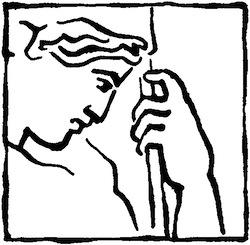Stel een vraag
Met het formulier hier onder kunt u contact op nemen met boekwinkel Scrinium.
EURIPIDES, - Alkestis. Herausgegeben, übersetzt und kommentiert von G.A. Seeck.
De vraag gaat over de volgende titel:
| Schrijver: | EURIPIDES, |
|---|---|
| Titel: | Alkestis. Herausgegeben, übersetzt und kommentiert von G.A. Seeck. |
| ISBN: | 9783110188769 |
| Uitgever: | Walter de Gruyter, Berlin / New York, 2008 |
| Bijzonderheid: | X,231p. Hardbound. Series: Griechische Dramen. Nice copy. |
| Prijs: |
€ 30,00
€ 4,50
|
| Meer info | 'G. A. Seeck's edition of the Alcestis with accompanying German translation and commentary is part of a new series from de Gruyter intended to offer detailed access to the text not only to philologists but to literary and theatre scholars more widely. The format is designed for accessibility. Following an extensive introduction, the German translation and Greek text are printed one above the other on the left hand page with commentary on the facing right hand page. The lemmata are generally keyed to the German translation, which aims to follow the Greek line for line. The format often leaves white space, but the result is highly user-friendly and should serve all its audiences well.(...) Seeck's treatment of the evidence for the Alcestis myth before Euripides as well as the poet's careful and limited deployment of references within the play to previous action is far more precise than that of many critics working on the play. He argues for a separation between the mythic world of the prologue and a demythologized world in which the action then plays out. Seeck's introduction singles out four larger themes of literary interpretation for discussion (the issues of contradictions and gaps, irony, psychology, and the notion of 'tragicomedy'). Euripides omits Admetus's voyage on the Argo and participation in the Caledonian boar hunt in the process of making him 'ein König ohne Ambitionen auf heroischen Ruhm und genaugenommen nur ein bürgerlicher Familienvater' (32). Indeed, the poet's treatment of the house of Admetus portrays it much more as an ordinary Athenian dwelling than as a palace out of the mythic past, and thus the scene of a 'burgerliches Drama' (41ff.). Euripides says nothing about the time between Alcestis's promise and the day of her death - but nothing invites the audience in the theatre to focus on that during the course of the performance. Three paragraphs on irony will not satisfy all, but Seeck lays out the case that irony resides more often in the play's reception than in explicit textual signals. A section on several more structurally oriented 'special questions' follows: the prologue, xenia, the scene with Pheres, the nature of Admetus's learning or 'recognition', whether his reception of the veiled woman is a betrayal of his marriage, and finally the question of Alcestis's silence. (...) The commentary will be particularly useful for meaning in performance. Seeck's suggestion that the chorus may arrive singly from both parodoi, for example, before grouping together in the orchestra is very appealing. (...) The volume is thus a welcome addition to the growing ranks of commentaries on this play. One looks forward to other entries in the de Gruyter series.' (NIALL W. SLATER in Bryn Mawr Classical Review 2009.05.28). |
| Boek bekijken | |

De verkoper zal binnen 3 werkdagen contact met u opnemen om de koop verder af te handelen.
